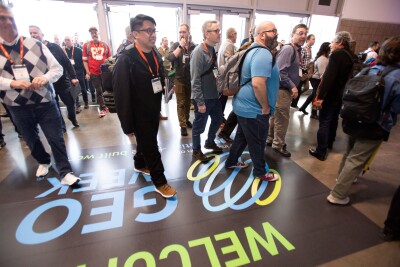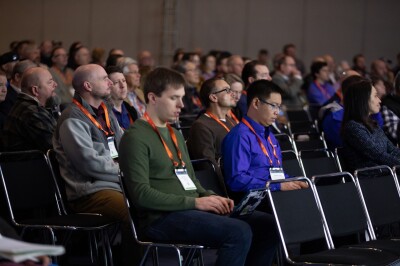Later this month, NV5 is going to be hosting a three-day virtual event called Geo Sessions. In their description of the event, which will take place October 22, 23, and 24, they call Geo Sessions an “online thought leadership event focused on the trends, benefits, techniques, and applications of geospatial data and analysis. Attend this event to gain insights from spectral, SAR, and LiDAR experts from public organizations, academia, and commercial industries and see what the present and future of geospatial data looks like from their perspectives.”
Geo Week News spoke with Kevin Weiner, a Senior Marketing and Communications Manager with NV5, about the event. He noted that the company has done similar events in the past, though they were more focused one-day events. This time around, they are expanding to three days, with each day including two hours of content focused on specific topic areas. The first day, for example, will be all about spectral analysis in the geospatial community. That will be followed by a second day focusing on SAR, and finally the third day with sessions around lidar. Each day will include an hour-long panel with industry experts, followed by a pair of 30-minute presentations.
Wiener emphasizes that this free event is meant to truly be a thought leadership one, and not something that will be pitching NV5. And indeed, the speakers run the gamut in terms of organization, with representatives including those from private companies like Planet Labs, Hexagon, and Airbus; public organizations such as NASA and USGS; and academic institutions like the Rochester Institute of Technology and the Istituto Nazionale di Geofisica e Vulcanologia.
When asked what he hopes attendees will be able to take out of this event – for which people can sign up for specific sessions or the entirety of the three days for free – he talked about gaining knowledge in these spaces.
“For me, it’s the ability to use data – spectral, SAR, lidar. It’s often scary to people,” Weiner said. “But it really is becoming that the effort you have to put in to get up to speed is being lowered. It’s this democratization word, right? Anybody and everybody can use the data, can analyze the data, can get information from it. Depending on how much and how accurate [data you need], you might need to know some background. But the technology and the data are both lowering the barriers to getting into it.”
If you’re interested in learning more about this three-day event, you can find full session information by following this link. You can also gain your free registration – which includes on-demand access to the recorded talks – by following this link.






